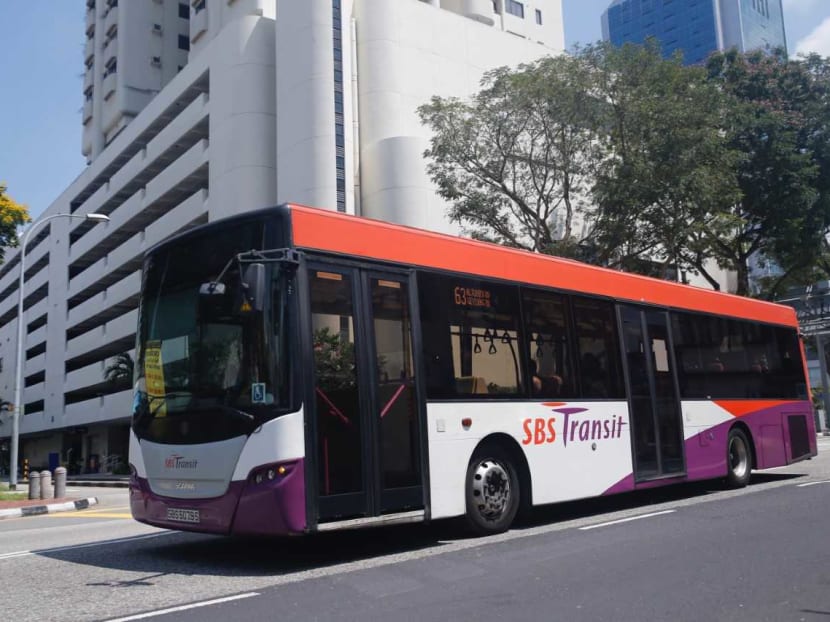SBS Transit bus captain agreements do not breach Act but may cause ‘confusion’: Industrial Arbitration Court
SINGAPORE — The Industrial Arbitration Court (IAC) on Wednesday (Nov 13) ruled that collective agreements on working conditions for SBS Transit (SBST) bus captains do not breach the Employment Act although it said some terms could be made clearer to avoid “confusion”.

SBS Transit asked the Industrial Arbitration Court to interpret key clauses in collective agreements covering its bus captains after five bus captains sued the firm alleging breaches of the Employment Act.
SINGAPORE — The Industrial Arbitration Court (IAC) on Wednesday (Nov 13) ruled that collective agreements on working conditions for SBS Transit (SBST) bus captains do not breach the Employment Act although it said some terms could be made clearer to avoid “confusion”.
SBST last month sought interpretations on key clauses of the agreements from the IAC after five SBST bus captains launched legal action against SBST, alleging they were underpaid for overtime, in breach of the Act, among other claims.
After Wednesday’s IAC ruling, a lawyer for the five bus captains, Mr M Ravi, said the drivers would proceed with their legal claims against SBST.
The IAC arbitrates industrial disputes and certifies collective agreements between employers and unions. A collective agreement is a contract negotiated by a trade union with the management of a company that regulates the terms and conditions of employees.
Last month, the Ministry of Manpower said the terms of the agreements between SBST and the National Transport Workers' Union (NTWU) affect about 6,000 SBST bus captains — not just the five taking legal action.
In the 29-page ruling, IAC President Justice Chan Seng Onn said while the clauses in the collective agreements complied with the Act, they took a different approach to “working hours” and “built-in overtime” than those either defined or envisaged in the Act.
“This can result in confusion when determining whether there has been compliance with the Employment Act. It can also lead to misunderstanding,” he added.
The bus captains’ lawyer and SBST on Wednesday offered different takes on the IAC ruling.
Mr Ravi, of Carson Law Chambers, said that his clients were “not surprised to know that our definition of work hours is in line with the Employment Act, and that the IAC agrees with our definition”.
“No organisation should re-define what normal work hours should be,” said Mr Ravi. “This is regardless of the fact that there is mutual agreement between the company and union.”
BUS CAPTAINS TO GO AHEAD WITH LEGAL ACTION AGAINST SBST: LAWYER
He said the bus captains would proceed with their claims in the Magistrates’ Court. The claims were launched in September. “Yes, this doesn’t change our position because the court has ultimate power and jurisdiction to rule on these matters.”
The case is due in court for a preliminary hearing on Dec 20.
Ms Tammy Tan, Senior vice-president of corporate communications at SBST, said: "The Industrial Arbitration Court has confirmed that we have acted in accordance with the
Employment Act in relation to the bus captains’ prescribed rest days, working hours and overtime.
“The IAC also found that the bus captains’ terms are equal to or more favourable than those that they are entitled to under the Employment Act.”
In reaching his decision, Justice Chan looked at samples of employment contracts, working rosters and information on pay submitted by SBST.
He looked at the question of whether the working conditions were in breach of one key provision of the Act: That workers cannot be required to work more than eight hours a day or 44 hours a week.
He said the bus captains were contracted to work 48 hours a six-day working week, which includes four hours of “built-in” overtime. However, when 45 minutes of daily break times are deducted, they work 43.5 hours a week, in compliance with the Act, he said.
The judge said he relied on the Act’s definition of “working hours”, which excluded break times, and not the definition in the collective agreement. He added that he treated the four hours of “built-in” overtime as “normal contractual working hours” and not overtime.
It was these distinctions that led the judge to suggest the terms could cause confusion and misunderstanding.
“It will be up to the employers and the union whether they wish to review all their work arrangements for bus captains and adopt instead the same definitions as those set out in the Employment Act,” he added.
REST DAYS ALSO 'COMPLY WITH ACT'
The 48-hour working week set out in the collective agreement does not include “non-compulsory overtime”, which bus captains may opt out of.
Terms which relate to rest days are also not in breach of the Act, which states that there should be at least one rest day per week of work without pay for that whole day, he added.
Justice Chan said that based on the sample roster, the bus captains are provided at least one rest day in each week, which are “rotated from Monday to Sunday” within seven-week cycles. This means that two consecutive rest days will be seven days apart within the cycle, which he noted was in compliance with the Employment Act.
Mr Melvin Yong, the executive secretary of NTWU said that the union will “continue to work closely with SBS Transit to ensure that the terms in our collective agreement remain competitive and are always beneficial to our members. We will continue to do our best, to serve the interests of our members.”








